The Salzburg Music Festival
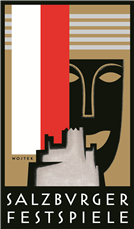 The Salzburg Music Festival is an annual event in July and August attracting world-class musicians, leading conductors and premier opera stars. The acoustics in the concert venue, Grosses Festspielhaus are probably the best in the world. Opera’s are lavish productions and performed with the full Vienna Philharmonic Orchestra. The Salzburg Festival is a world famous classical music festival attracting top politicians, the rich and the famous and those seeking the finest classical concerts and perfectly performed operas. During the Festival, Salzburg is transformed in to the ultimate ‘black-tie’ venue as concert and operas goers wander through the streets in their finest evening gowns to attend cocktail parties before their performance. Later they spill into restaurants often dining next to some of the stars. There is no better way to enjoy all this than in the company of a small party of like-minded persons, enabling you to revel in the nights performances and enjoying convivial conversation.
The Salzburg Music Festival is an annual event in July and August attracting world-class musicians, leading conductors and premier opera stars. The acoustics in the concert venue, Grosses Festspielhaus are probably the best in the world. Opera’s are lavish productions and performed with the full Vienna Philharmonic Orchestra. The Salzburg Festival is a world famous classical music festival attracting top politicians, the rich and the famous and those seeking the finest classical concerts and perfectly performed operas. During the Festival, Salzburg is transformed in to the ultimate ‘black-tie’ venue as concert and operas goers wander through the streets in their finest evening gowns to attend cocktail parties before their performance. Later they spill into restaurants often dining next to some of the stars. There is no better way to enjoy all this than in the company of a small party of like-minded persons, enabling you to revel in the nights performances and enjoying convivial conversation.
You can join a small party of classical music and opera lovers on a hosted trip to Salzburg Festival, with tickets to four top performances and welcome drinks reception plus hosted dinners each evening.
Salzburg Festival History
Early beginnings:
The International Mozarteum Foundation held irregular music festivals in Salzburg from 1877 – 1910. Although a festival was planned for 1914, it was cancelled at the outbreak of the First World War. In 1917, Friedrich Gehmacher and Heinrich Damisch formed an organisation known as the Salzburger Festspielhaus-Gemeinde to establish an annual festival of drama and music, emphasizing especially the works of Mozart.
At the close of the war in 1918, the festival’s revival was championed by five men now regarded as the founders: the poet and dramatist Hugo von Hofmannshal, the composer Richard Strauss, the scenic designer Alfred Roller, the conductor Franz Schalk, and the director Max Reinhardt.
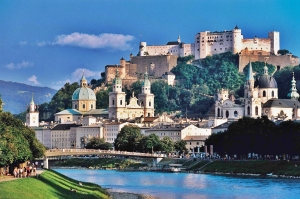
The Salzburg Festival was officially inaugurated on 22 August 1920 with Reinhardt’s performance of Hofmannsthal’s Jedermann on the steps of Salzburg Cathedral. The play has become a tradition, and is always performed during the summer festival. In 1921 several performances of chamber music and orchestra works were added. The first operatic production came in 1922, with Mozart’s Don Giovanni, conducted by Richard Strauss.
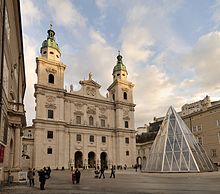
The first festival hall was erected in 1925 at the former Archbishop’s horse stables at the foot of the Monchsberg mountain and opened with Turandot. By this time the festival had established itself as a leading classical music festival and cultural event with including live broadcasts on the Austrian radio network. The following year the adjacent former riding academy, carved into the Mönchsberg rock face, was converted into a theatre, inaugurated with the performance of Servant of two Masters by Goldoni. In the 21st century, the original festival hall, suitable only for concerts, was reconstructed as a third venue for fully staged opera and concert performances and reopened in 2006 as the House for Mozart.
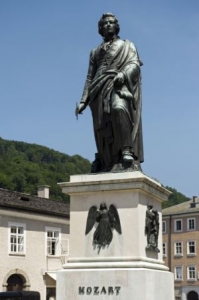
The ” Golden Period” 1934 to 1937
Famed conductors such as Arturo Toscanini and Bruno Walter conducted many performances during this time. In 1936, the festival featured a performance by the Trapp Family Singers, whose story was later dramatized as the musical and film The Sound of Music. In 1937, Boyd Neel and his orchestra premiered Benjamin Britten’s Variation on a Theme of Frank Bridge at the Festival.
The Impact of Hitler
The Salzburg Festival’s popularity suffered a major blow upon the annexation of Austria by Nazi Germany in 1938. Toscanini resigned in protest, artists of Jewish descent like Reinhardt had to emigrate, and Jedermann had to be dropped. Nevertheless the festival remained in operation until in 1944 when it was cancelled by the order of Reich Minister Goebbels. At the end of the second World War, the Salzburg Msuic Festival reopened in the summer of 1945 after the Allied Victory in Europe.
Post World War II Festivals
The post-war festival slowly regained its prominence as the premier summer opera festival, especially in works by Mozart and with the conductor Herbert von Karajan becoming artistic director in 1956. In 1960 the Grosses Festspielhaus opened its doors and the festivals stature as the premier venue for opera, drama, and classical concerts was established. Karajan’s years were supreme but contentious, especially his insistence of no women being in allowed to play with the Vienna and Berliner Philharmonic Orchestras.
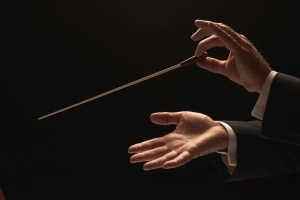
More recent times
Upon Karajan’s death in 1989, the festival was drastically modernized and expanded by director Gerard Mortier, who was succeeded by Peter Ruzicka in 2001. In 2006, the festival was led by Flimm and concert director Hinterhauser. That year, Salzburg celebrated the 250th anniversary of Mozart’s birth by staging all 22 of his operatic works to great acclaim. These were filmed and released on DVD in November 2006. The 2006 festival also saw the opening of the Haus fur Mozart.
Today
The Salzburg Music Festival is perhaps the most exclusive and exciting classical music festivals in the world, known for its exceptionally high quality of music, the commitment of its international artists and as a successful combination of the traditional and modern. The current director is Alexander Pereira. Salzburg is the pinnacle for orchestras, soloists and conductors.
You can join a small party of classical music and opera lovers on a special trip to Salzburg, with tickets to three top performances, welcome drinks reception and hosted dinners each evening.

